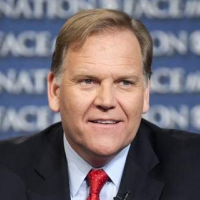Congressional Oversight of NSA…Blink and You’ll Miss It
 Rep. Mike Rogers (photo: CBS News)
Rep. Mike Rogers (photo: CBS News)
Congress in the 1970s created for the first time two committees, one each in the House and Senate, to oversee the intelligence community after a congressional inquiry discovered the Central Intelligence Agency (CIA) and the National Security Agency (NSA) had spied on Americans. Today, government watchdog groups and even some lawmakers argue that the intelligence committees have failed to provide proper oversight of U.S. spy agencies, particularly the NSA in light of the recent revelations provided by whistleblower Edward Snowden.
At the center of this debate are the House Permanent Select Committee on Intelligence and the Senate Select Committee on Intelligence, created in 1978 in the wake of the Pike and Church investigations that exposed abuses by the CIA and NSA. From that point on, the panels were charged with keeping a close eye on intelligence operations so that the illegal spying uncovered by Representative Otis Pike (D-New York) and Senator Frank Church (D-Idaho) never happened again.
But as last year’s revelations about the NSA’s controversial surveillance programs demonstrated, the congressional intelligence committees have failed to do their mandated jobs. Too often, critics say, lawmakers on these panels play nice with intelligence officials from the Executive Branch, and too often treat them, in the words of Ryan Lizza of New Yorker, “like matinée idols.”
“It’s time for Congress to reassert its oversight role and begin a full-scale investigation into the NSA’s surveillance and analytic activities. The current investigations—which aren't led by Congress—are unable to fully investigate the revelations, Congressional committees' hearings have added little, and Congress cannot rely solely on mandating more reports from the NSA as a solution,” wrote Mark Jaycox and Lee Tien wrote of the Electronic Frontier Foundation (EFF), which champions privacy rights on the Internet.
Some members of Congress, like Representative Alan Grayson (D-Florida), are frustrated with the intelligence committees, saying their members are privy to important details about spying, while everyone else in Capitol Hill is left in the dark.
“Despite being a member of Congress possessing security clearance, I've learned far more about government spying on me and my fellow citizens from reading media reports than I have from ‘intelligence’ briefings,” Grayson wrote in The Guardian.
Grayson says that when he has asked for classified information and meetings with the NSA, the House intelligence committee has refused to provide either.
“Supporters of the NSA’s vast ubiquitous domestic spying operation assure the public that members of Congress can be briefed on these activities whenever they want. Senator Saxby Chambliss [R-Georgia] says all a member of Congress needs to do is ask for information, and he'll get it. Well I did ask, and the House Intelligence Committee said ‘no,’ repeatedly. And virtually every other member not on the Intelligence Committee gets the same treatment,” Grayson added.
The EFF notes that former lawmakers who helped create the intelligence committees have also complained about their ineffectiveness and that they are not doing what Congress intended. These critics include former Vice President Walter Mondale and Senator Gary Hart (D-Colorado).
What’s needed, according to Jaycox and Tien, is for Congress to bypass its intelligence committees and create a special panel to probe the NSA in light of what Snowden and newspapers have exposed.
“Such a committee will allow Congress to delve into what other data the NSA may be collecting en masse about Americans, to learn about how the surveillance laws it passed are being used, and to inform the American public—all while protecting national security. It's a tough balancing act, but Congress was able to do it in the 1970s with the Church and Pike Committees. And it should have the courage to do it again today,” they wrote.
-Noel Brinkerhoff
To Learn More:
Three Hearings, Nine Hours, and One Accurate Statement: Why Congress Must Begin a Full Investigation into NSA Spying (by Mark Jaycox and Lee Tien, Electronic Frontier Foundation)
State of Deception (by Ryan Lizza, New Yorker)
Intelligence Contractors Give Millions to Congressional Oversight Members (by Noel Brinkerhoff, AllGov)
Congressional Oversight of the NSA is a Joke. I Should Know, I'm in Congress (by Alan Grayson, The Guardian)
- Top Stories
- Unusual News
- Where is the Money Going?
- Controversies
- U.S. and the World
- Appointments and Resignations
- Latest News
- Musk and Trump Fire Members of Congress
- Trump Calls for Violent Street Demonstrations Against Himself
- Trump Changes Name of Republican Party
- The 2024 Election By the Numbers
- Bashar al-Assad—The Fall of a Rabid AntiSemite






Comments